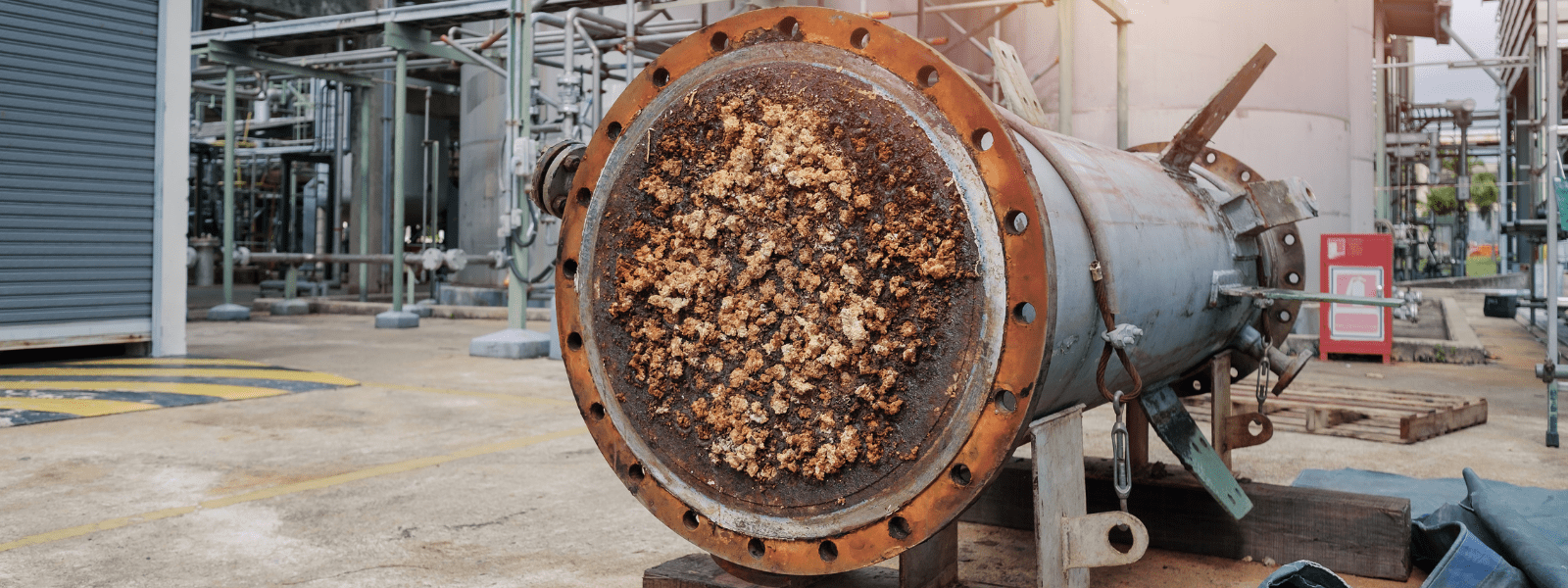Heat exchangers are used in industrial settings to transfer heat away from a system, usually by pumping it through a set of coils or membranes surrounded by natural water. Unfortunately, heat exchangers are susceptible to fouling, which is when minerals or organic materials build up, causing clogged waterways and a decrease in efficiency.
Keep reading to learn about the types of fouling found in many heat exchangers!
Biological Fouling
Also known as “biofouling,” biological fouling refers to any fouling created by the accumulation of organic material, such as:
- Bacteria
- Algae
- other microorganisms
Biofouling is very common in saltwater heat exchangers due to the organic abundance of saltwater. Additionally, biofouling can be troublesome because just like a weedy garden, once a small amount of biomass has taken hold, it will increase itself exponentially.
Fouling by Chemical Reaction
This type of fouling occurs when two metals interact during the heat transfer process, and react to form new solid material, which blocks the flow of water in the system. This is frequently seen in the oil industry where refining takes place.
Corrosion
Corrosion is a type of fouling that involves the electrochemical reaction of a surface with the fluid surrounding it.
For example, rust occurs when iron atoms lose electrons to the surrounding oxygen atoms contained in the water (this reaction is called oxidation). Usually, corrosion can be reduced by coating metal surfaces with an anti-corrosion material, though sometimes these materials are not as resilient.
Freezing Fouling
Depending on the temperature of the surface and the speed of liquid through the system, the fluid or material in the fluid may solidify. In extreme cold, this can cause a buildup of ice, and in warmer situations can cause wax buildup, which will harden and have a clogging effect in relatively cold temperatures.
Fouling by Precipitation
Precipitation in a chemical sense refers to the deposition of solid materials through a chemical interaction. If a liquid-liquid reaction (aqueous) creates a non-soluble product, it will appear as a solid and is referred to as a precipitate.
Precipitates can also occur when the conditions for solubility change, which does not require a chemical reaction. If you have ever tried to make salt water without heating the water, you may have noticed that some of the salt remains in solid form (precipitate). Similarly, if the temperature of a system drops, or some of the fluid evaporates, precipitants can form.
Some examples of common precipitants seen in industrial heat exchangers include:
- Calcium sulfate
- Calcium carbonate
- Calcium oxalate
- Magnesium hydroxide
- Silicates
- Copper
- Phosphates
- Barium Sulfate
- Magnetite
Fouling by Particles
Sometimes fouling can occur without chemical interactions, but simply by the accumulation of the small particles suspended in a fluid. This process is often referred to as sedimentation, as the most common form of particles includes different types of sand, dirt, and small rocks. However, pollution can also cause plastic and metal particle buildup, depending on the location of the heat exchanger, and the amount of filtering that occurs during water intake.
Have a Fouling Problem?
If you find yourself with any of these types of heat exchanger buildups, Ecolink is here to help you find an eco-friendly solution! Check out our catalog of chemicals or contact us to get started.















